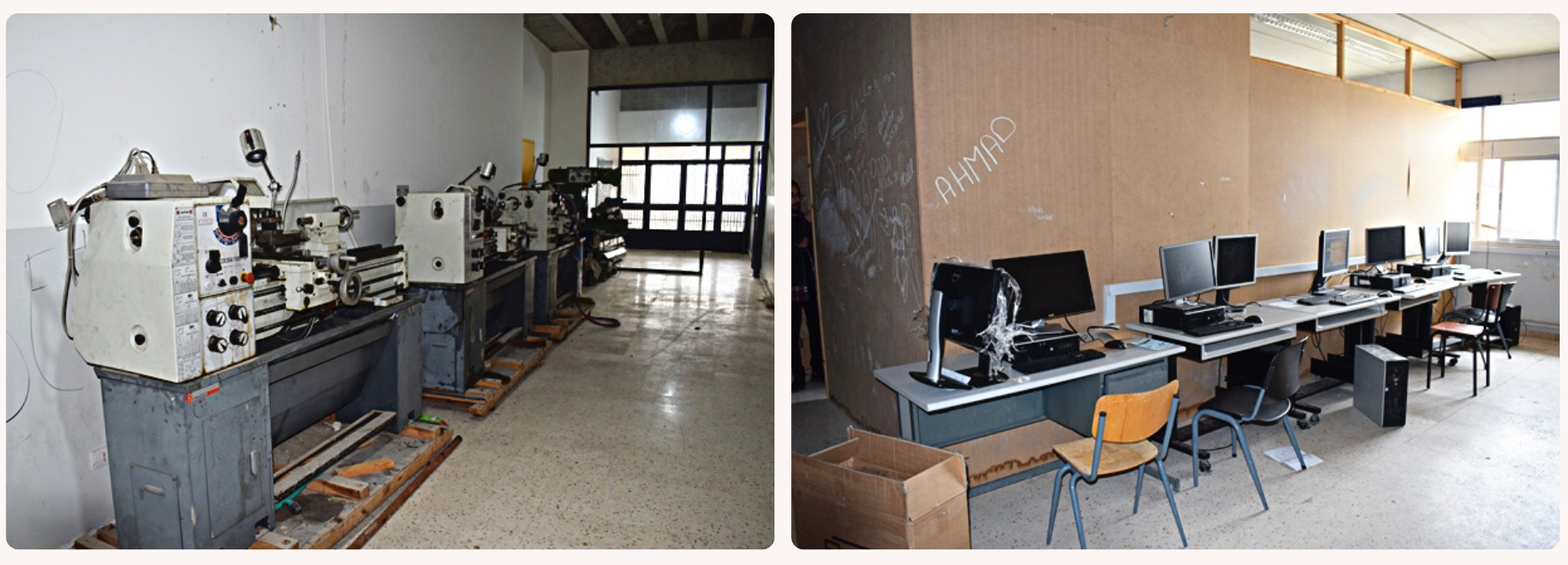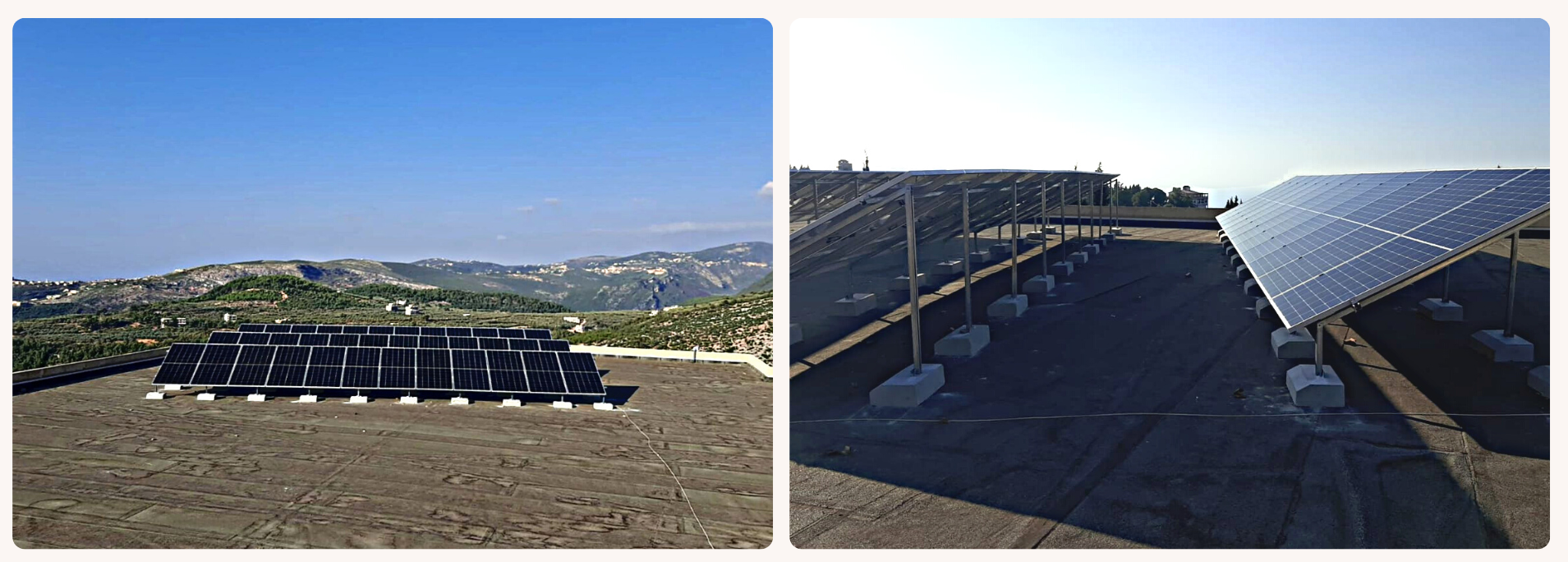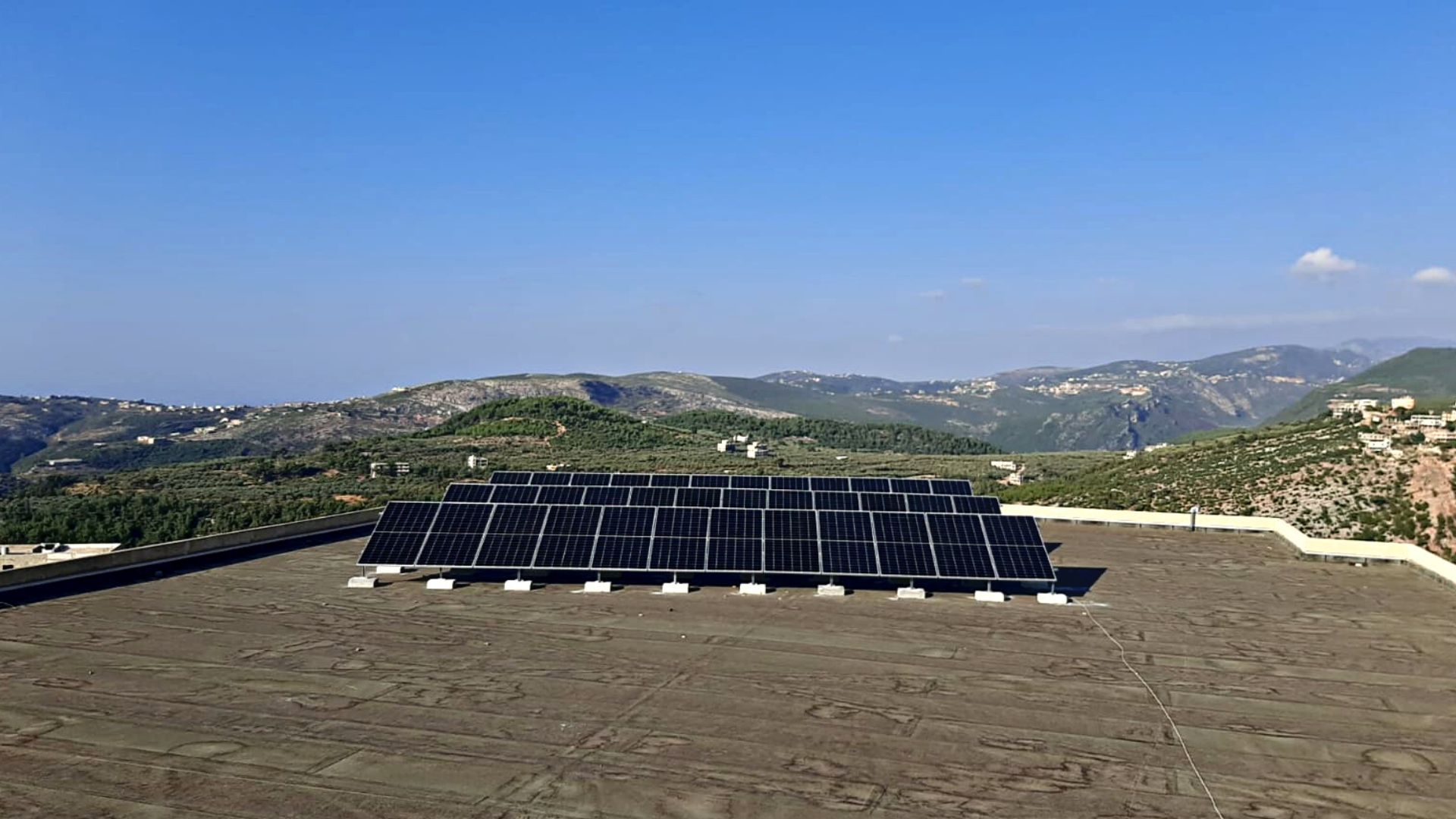Svetla Baeva, Communications Lead, UNDP Europe and Central Asia
Ray of hope: Using solar energy to power a school in Lebanon
With electricity coming on at random times in Lebanon, and for only a couple of hours a day, people are trying to find ways to adapt.
Lebanon’s electricity crisis is part of a broader economic one gripping the country, its worst in decades and one that the World Bank said could rank among the world’s three most severe since the mid-nineteenth century.
Power cuts have long been a part of life in the country because of a dysfunctional electricity sector. But over the past years, they have worsened, with acute fuel shortages leading to critical blackouts across Lebanon.
Faced with these daily power outages, many have turned to privately owned diesel-powered backup generators for electricity. However with inflation rising, and unemployment skyrocketing, a dwindling number of people can afford the extra generator power.
The coming and going of electricity is also affecting educational facilities all across the country, particularly in rural areas. The case of the Bakhoun Technical School, located in a small village in the northern part of Lebanon, is no exception – where the unpredictable power outages have made it difficult for students to attend classes.

Computers and machinery lay unused due to the power shortages in the school
No longer able to sustain itself due to power supply shortages, in 2021 the school was on the brink of closing down. This meant that nearly one thousand students were at a risk of dropping out of school.
The power of light
Initially founded in the 1980s, the Lebanese Solar Energy Society (LSES), a network of academics and engineers intent on popularizing the use of renewable energies, made a comeback after the Lebanese Civil War. “Our vision is Lebanon run on solar,” says Youssef Ghantous, Secretary of the Board of LSES.
Over the years, LSES has worked to steer policy and people towards the opportunities of solar energy. They have been involved in carrying out studies on rural electrification, advocating for favorable regulation and legislation, designing and implementing energy and environmental solutions, consulting organizations on how to install solar energy systems and so much more.
In 2021, LSES teamed up with UNDP Lebanon to launch the Ray of Hope crowdfunding campaign, with the goal to raise the funds necessary to keep the Bakhoun Technical School running sustainably. The school urgently needed to transition to new energy sources to end its dependence on diesel fuel and keep children in school.
The campaign’s target was USD$20,000, which would go towards installing a small-scale solar photovoltaic power station. This would cover around 60% of the school’s power consumption, while at the same time cutting emissions by 16 tons of CO2 per year.
To keep the lights on, the school administration relied on diesel-powered generators, ubiquitous across the country. This meant not only having to deal with the high prices of diesel, exorbitant maintenance costs of generators, and diesel shortages, but the daily exposure of children to the hazardous fumes that these machines produce daily.
Air pollution from diesel generators contains more than 40 toxic air contaminants, including many known or suspected cancer-causing substances, and greater exposure to these pollutants likely increases respiratory illnesses and cardiovascular disease, according to the Environment Academy at the American University of Beirut in Lebanon.
The new energy solution would not only provide healthier schooling conditions for the students, but it would help the school management save up to USD$4,600 annually, while keeping the facility running smoothly.
Crowdfunding for a sustainable future
Ray of Hope ran for three months in the Spring of 2021, during which they managed to collect USD$28,000, using various canny methods to engage the local communities and diaspora.
“Crowdfunding in a country hit by a crisis is not easy. So we thought we should target the diaspora of the school’s village. In Lebanon, there are more people living outside of Lebanon than within,” explains Youssef. They tapped into the diaspora community’s WhatsApp groups to connect with the families living abroad to spread the word.
After the initial push, things slowed down – very common in the crowdfunding campaign cycle. “I didn't think it'd be so slow. I thought it'd escalate. [...] It was with the media that we were able to power the campaign further,” remembers Youssef. The LSES team also involved the local authorities, the school administration and kids in their efforts to promote the campaign.

Once the funds were collected, the lengthy process of procuring the solar panels and batteries, their shipment, and installment began. While installation doesn’t take long, getting all the parts to Lebanon takes time. Finally, in 2023 the small-scale solar photovoltaic power station began operations. They even organized a workshop with the students to teach them how it works and explain the benefits of green energy.
Investment in sustainability is investing in the future. “We believe that we can replicate this project in other schools in Lebanese rural areas,” says Youssef. This green energy pilot project will serve as a model for the design and management of other small-scale photovoltaic projects across energy-deprived Lebanon.
Learn more about Lebanese Solar Energy Society's work and support them.
